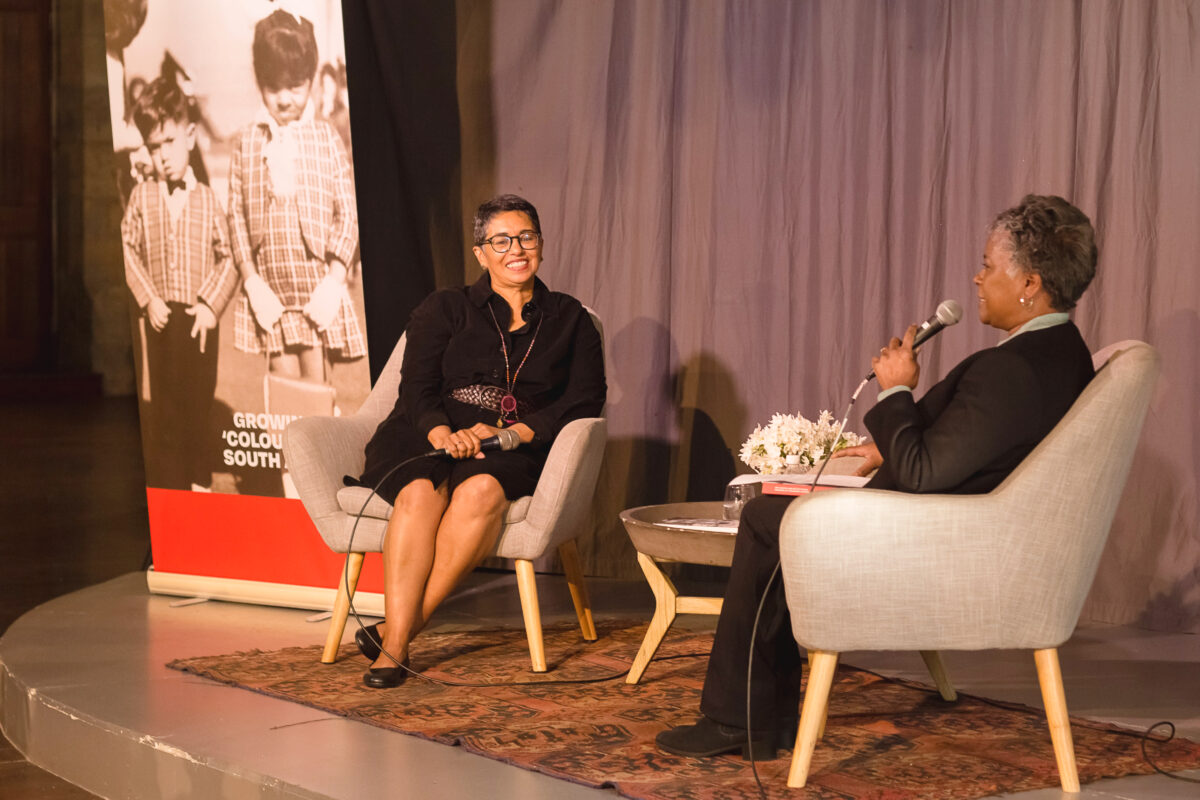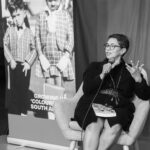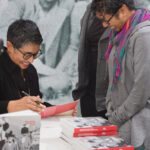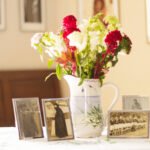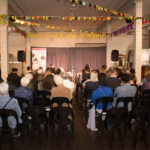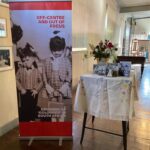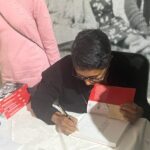Off-Centre and Out of Focus: Growing up ‘coloured’ in South Africa was launched with friends and family at the District Six Homecoming Centre on 13 May. It was wonderful to be able to celebrate with people who have been on the journey with me and who contributed to this book in some way – sharing their stories with me, cheering me on, and offering advice.
I was particularly pleased about being able to celebrate the birth of my book in the District Six Homecoming Centre in what used to be the Sacks Futeran building. For generations the Futeran family traded in clothing and textiles here, and the store was frequented by generations of seamstresses and tailors from District Six. I remember being dwarfed by bolts of fabric and riding the rickety lift with my parents to the second floor to buy anything from crockery to clothing. My father’s memories of District Six are at the heart of this book. Sadly, he died of COVID in 2020, but I know that he would have appreciated the choice of venue.
Dr Bonita Bennett, who was the director of the District Six Museum for more than ten years, gracefully facilitated a discussion around ‘colouredness’, the fluidity of race and belonging, issues of respectability, and the archiving of ordinary objects. This book has always been about starting a conversation about the complexities of growing up labelled ‘coloured’ in South Africa, before, during and post- apartheid. I wanted the knowledge that I gained during my PhD to be more widely accessible rather than being confined to the university library shelf.
The family photographs that gave rise to my thesis and now this book, represent the hopes and aspirations of our parents and grandparents. They generate stories of a way of being and living that challenge the dominant narratives of inferiority and shame that were assigned to a group of people designated neither-white-nor-black. They quietly disrupt the apartheid archive that sought to fix difference in terms of race, gender and culture. I hope that this will open up discussion around the pain and trauma that we lived through so that we may look forward to a future where we may see each other as simply human.
The American writer and activist, Audre Lorde, speaks about the importance of oppressed people being able to speak out of their own experience and to see it as valid, to deal with our definition of self. She cautions that if we don’t identify ourselves, someone else will, and probably to our detriment. Through sharing my experience, I sincerely hope that more people will be motivated to share theirs, and I look forward to more conversations and sharing.
